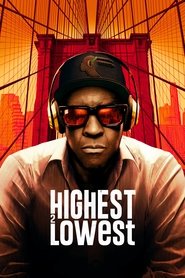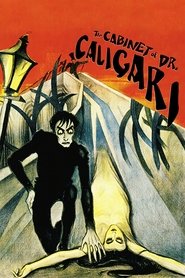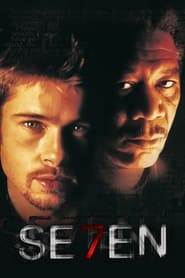The Green Book: Guide to Freedom
20190h 52m Directed by Yoruba Richen
★7.7
(61 votes)DocumentaryHistoryTV Movie
Overview
In 1936, Victor H. Green (1892-1960) published The Negro Motorist Green Book, a book that was both a travel guide and a survival manual, to help African-Americans navigate safe those regions of the United States where segregation and Jim Crow laws were disgracefully applied.

No streaming options available
This movie may not be available in United States
Data provided by JustWatch
CAST

Yoruba Richen
Self - Narrator (voice)
Delbert Hunt
Green Book Excerpts Narrator (voice)
Marquette Folley
Self - Smithsonian Institute Member
Karen Allen Baxter
Self
Jennifer Ivey
Self
Henrie Monteith Treadwel
Self - Civil Rights Activist
Murray Bishoff
Self - Journalist and Local Historian
Jack George
Self - Pierce City Resident
Jamon Jordan
Self - Local Historian
Candacy Taylor
Self - Author
Unveiling the Hidden History of "The Green Book: Guide to Freedom"
WatchListHQ•Sep 3, 2025
The documentary "The Green Book: Guide to Freedom" is a poignant and thought-provoking film that sheds light on a pivotal moment in American history, one that is both disturbing and enlightening. The film delves into the story of Victor H. Green, the publisher of The Negro Motorist Green Book, a guide that served as a lifeline for African-Americans traveling through the segregated South during the 1930s. With a runtime of just 52 minutes, the documentary efficiently packs a wealth of information, making it an engaging and informative watch. The film's narrative is well-structured, seamlessly weaving together archival footage, interviews, and reenactments to create a compelling portrait of a bygone era.
The documentary's greatest strength lies in its ability to contextualize the Green Book within the broader landscape of American history, highlighting the pervasive racism and segregation that African-Americans faced during this period. The film does an excellent job of conveying the sense of fear and uncertainty that accompanied even the most mundane activities, such as stopping for gas or finding a place to eat, for African-Americans traveling through the South. The Green Book, in this context, emerges as a powerful symbol of resistance and resilience, a testament to the resourcefulness and determination of African-Americans in the face of overwhelming oppression. The documentary also raises important questions about the ongoing legacy of segregation and racism in America, inviting viewers to reflect on the ways in which the past continues to shape our present.
One of the most striking aspects of "The Green Book: Guide to Freedom" is its thoughtful pacing and editing, which allow the viewer to absorb the weight of the subject matter without feeling overwhelmed. The film's use of archival footage and photographs adds a layer of authenticity, while the interviews with historians and descendants of those who used the Green Book provide valuable insights into the guide's significance and impact. If the documentary has a flaw, it is that it sometimes feels a bit too concise, leaving the viewer wanting more information about certain aspects of the Green Book's history. Nevertheless, "The Green Book: Guide to Freedom" is a powerful and eye-opening documentary that is sure to resonate with viewers, offering a nuanced and thought-provoking exploration of a pivotal moment in American history. Overall, the film is a must-watch for anyone interested in history, social justice, or the African-American experience, and its concise runtime makes it an accessible and engaging watch for a wide range of audiences.
The documentary's greatest strength lies in its ability to contextualize the Green Book within the broader landscape of American history, highlighting the pervasive racism and segregation that African-Americans faced during this period. The film does an excellent job of conveying the sense of fear and uncertainty that accompanied even the most mundane activities, such as stopping for gas or finding a place to eat, for African-Americans traveling through the South. The Green Book, in this context, emerges as a powerful symbol of resistance and resilience, a testament to the resourcefulness and determination of African-Americans in the face of overwhelming oppression. The documentary also raises important questions about the ongoing legacy of segregation and racism in America, inviting viewers to reflect on the ways in which the past continues to shape our present.
One of the most striking aspects of "The Green Book: Guide to Freedom" is its thoughtful pacing and editing, which allow the viewer to absorb the weight of the subject matter without feeling overwhelmed. The film's use of archival footage and photographs adds a layer of authenticity, while the interviews with historians and descendants of those who used the Green Book provide valuable insights into the guide's significance and impact. If the documentary has a flaw, it is that it sometimes feels a bit too concise, leaving the viewer wanting more information about certain aspects of the Green Book's history. Nevertheless, "The Green Book: Guide to Freedom" is a powerful and eye-opening documentary that is sure to resonate with viewers, offering a nuanced and thought-provoking exploration of a pivotal moment in American history. Overall, the film is a must-watch for anyone interested in history, social justice, or the African-American experience, and its concise runtime makes it an accessible and engaging watch for a wide range of audiences.
Recent Lists

Electric Dreams And Explosions: The Best Action Movies Of The 1980s
Sep 6, 2025

Trending Movies Today, 06 Sep, 2025
Sep 6, 2025

Silent Screams: Thrilling Classics From The 1920s
Sep 6, 2025

Unveiling Reality: A Curated List Of Documentary Films
Sep 5, 2025

Trending Movies Today, 05 Sep, 2025
Sep 5, 2025

Unraveling The Mysteries Of The 90s
Sep 5, 2025

Timeless Family Classics From The 1970s
Sep 4, 2025

Embark On Thrilling Quests: Adventure Movies Of The Decade
Sep 4, 2025

Trending Movies Today, 04 Sep, 2025
Sep 4, 2025

Unraveling The Mysteries Of Germany
Sep 4, 2025